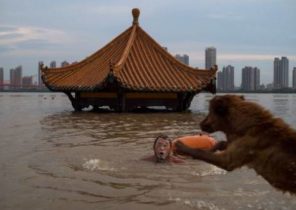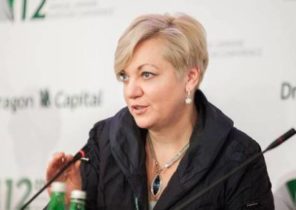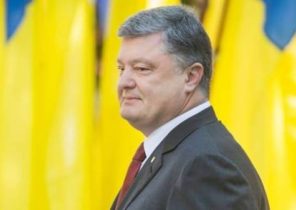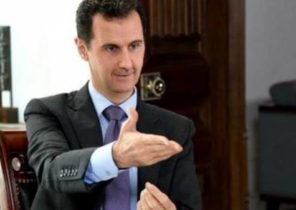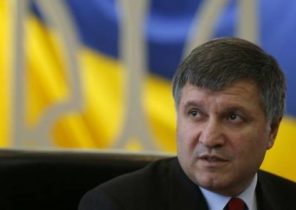Article published may 12, 2015.
We are celebrating the 70th anniversary of the end of the Second world war in Europe. The era of universal peace, this victory is not opened. Rather, it has created a new balance of power and led to a complex equilibrium. Great powers and empires of Europe went into decline, and in their place came the United States and the Soviet Union began to dance an old dance to new music. Rapidly developing technology, a companion of geopolitics: nuclear weapons, satellites, and microchips — along with other wonders and horrors — have changed not only the rules of war, but also the circumstances under which war is possible at all. One thing remains unchanged: geopolitics, technology and the war were inseparable companions.
To list what has remained the same, simple, but the Second world war has brought important changes. The first thing that comes to mind is how the war began for the three great powers: USA, USSR and UK. For all three it was a shock that changed their view of the world. For US it was the shock of pearl Harbor. For the Soviet Union — the shock of the German invasion in June 1941. For the UK — though it is not the beginning of the war — shock, how quickly France collapsed.
Pearl Harbor turned American thinking
American leaders are almost do not doubt that war with Japan was coming. The General public is also a premonition — though not with the clarity of their leaders. Nevertheless, nobody expected that the blow will be struck at pearl Harbor. For the American public it was a bolt from the blue — exacerbated by the death of the main part of the US Pacific fleet. Neither the leaders nor the public did not expect that the Japanese will be so prepared.
Pearl Harbor coincided with another blow to the American psyche — the great depression. These two events had much in common: firstly, they seemed to have happened out of the blue. For some, they were predictable and to be expected, but for the majority of both came as a bolt from the blue. And both discovered a new, unexpected page acute pain and suffering.
So in American culture, new, unseen layer. Hitherto the Americans exuded a deep, abiding optimism. The great Depression and pearl Harbor brings a different feeling — a suspicion that the prosperity and security — only an illusion behind which lies the misfortune. There was a fear that all could be shut down suddenly and irreparably — a belief in peace and prosperity began to seem naive. Both of these shocks has created a sense of foreboding, which sharpens American society from within to this day.
In addition, pearl Harbor had built the defense policy of the United States around the idea that, even when the enemy is known, it is impossible to predict where and when he will strike. Disaster could come at any moment. The American approach to the cold war symbolizes Cheyenne mountain in Colorado. Deep in its depths are hidden the North American command aerospace defense — and it comes from the fact that the war could erupt at any time and that any relaxation of vigilance will lead to a new pearl Harbor, only nuclear. The fear of such an outcome — coupled with distrust of the wily and ruthless enemy — largely defined the cold war in the minds of Americans.
The Americans have analyzed what drove them to join the Second world war and identified what they thought the root cause: the Munich agreement by which Nazi Germany annexed part of Czechoslovakia. This opinion was not purely American, but it changed the strategy of the United States. If the Second world broke out because of the inability to anticipate the actions of the Germans in 1938, it followed that the Pacific war could have been prevented decisive and timely intervention. Act proactively and energetically — is still the motto of US foreign policy. The idea that the late and hesitant steps led to the Second world war, is the basis of many of the American discussion about Iran or Russia.
Pearl Harbor and the stock market crash of 1929 not only brought a sense of foreboding and has raised doubts about the wisdom of political leaders and commanders, but was replaced by a strategy of mobilization with the beginning of the war strategy of constant readiness. If the war could begin at any time, and if the main thing — to avoid a second Munich, the existing today, a huge military establishment — is indispensable. In addition, the Alliance under the leadership of the United States, which before the Second world war did not exist.
Strategic miscalculation of the Soviet Union
The Soviet Union had its own pearl Harbor: June 22, 1941, the Germans invaded their country, despite the signed in 1939, a Treaty of friendship. He was imprisoned for two reasons: first, the Russians failed to convince the British or the French to sign an anti-Hitler Pact. Second, the agreement with Hitler would have allowed the Soviets to move its border to the West without firing a shot. It was a clever move, but not far-sighted.
The Soviets made a single miscalculation: they hoped that the German campaign in France will be a repetition of the previous great war. It was assumed that the Germans would exhaust their powers, and the Soviets will attack them in a convenient place at a convenient time. The chance they never got. On the contrary, the Germans were able to attack the USSR — where considered necessary and when. The surprise attack was exacerbated by the size of the disaster, but the true reason for the collapse was a strategic miscalculation, not just a failure of intelligence or command.
Tips chose a dynamic foreign policy shift alliances based on the assessment of the various players and their capabilities. One wrong step could lead to disaster — attacked at the moment when the Soviet army had not recovered from another Stalin’s purge. Soviet troops were not ready to attack, and their strategy collapsed along with France, so the decision on the war single-handedly took Germany.
From the June invasion of 1941, the Soviets were convinced that political maneuvers will not be able to replace military power. The United States ended the Second world war conviction that the main cause of this war was the failure of America. Tips — contrary to popular belief — that despite strenuous efforts to create a coalition and maintaining the balance of power they have become extremely vulnerable because of a single miscalculation in France.
During the cold war, the Soviets developed a strategy, which can be called “passionless”. Under pressure from a coalition headed by the USA and the Soviets were rather allies of the satellites. The Warsaw Pact was not so much a Union as a geopolitical reality. For the most part it consisted of States under the direct control of the Soviet Union — whether military, intelligence or political. The military value of the unit was limited — and so is his space. Nevertheless, the Soviet forces could be relied upon, and the Warsaw Pact, unlike NATO, was a geographical reality. With its help, the Soviets guaranteed that the invasion by the US or NATO. It is obvious that the Soviets and Americans remained vigilant about a nuclear attack, but it was noted that the Soviet system was considerably less sophisticated than the us. In part this imbalance was due to technological possibilities. Partly because most of the Soviet Union was not afraid of nuclear attack — though this threat was impossible to ignore. Primal fear in Moscow was the attack from the West. Hence the Soviet Union’s strategy was to position their own forces as far to the West.
Compare with the relations of the USSR with China. Ideologically, China was supposed to be a strong ally, but by the mid-1950s, the Alliance crumbled. The Soviets were not ideologues. They were geopolitics and China was a potential threat, to cope with which they could not. Ideology did not matter. China would never fulfil the role allotted to, say, Poland. Sino-Soviet relations soon disintegrated.
The Soviet public had not experienced the American fear, where under the guise of peace and prosperity ripened the seeds of disaster. The Soviet demands and expectations of life were much more modest American — as well as the hope that the government will prevent the catastrophe. On the contrary, it is the state generated disaster. At the same time, the war exposed almost from the beginning — spontaneous deep patriotism, hiding decades under the ideology of internationalism. The Communist rage, cynical indifference and fear of the Soviet secret police Russian has found something new, while the Americans found forgotten old.
The collapse of France shook the Kingdom
As for England, they blunder about France in General anything is not affected. Despite the fact that the sudden collapse of France stunned them, they felt a secret relief that won’t have to fight in the French trenches. With the collapse of France had to rely on two things: first, that the English channel, Navy and air force will keep the Germans at Bay. Secondly, that in his time in the war lured the US. Both their calculation was justified.
However, the main winners of the UK not included. The Germans may not be occupied — but by the Americans. It was a very different occupation — maybe even necessary in the UK — but still foreign occupation. And with all her gentleness and kindness, it meant the end of the British Empire and Britain as a superpower. Britain was not defeated American troops — and the shock of the defeat of the French. On paper the French had a great army in many respects superior to the Germans. But they lasted only a few weeks. Summing up the feelings of the British people: denial gave way to exhaustion, and then resentment.
Some of these feelings a thing of the past. The Americans retain their fear, although the Second world war their country in their own way brought a lot of benefits. The war put an end to the great depression and the period starting from the law on benefits to veterans and loan companies Virginia up to the national highway system — has created a middle class professionals with private houses and extensive capabilities. And yet the fear remains, and not always latent. Pearl Harbor present were the attacks of September 11, 2001. Fear that security and prosperity is just a sand castle, not irrational.
Russian patriotism still lies behind the cynicism. The collapse of the Soviet Union and the collapse of its sphere of influence is not entailed creative, strategic steps. On the contrary, in Ukraine the President of Russia Vladimir Putin react as dispassionately as Stalin or Leonid Brezhnev. Putin is not a Machiavellian genius and heir to the German invasion of 22 June 1941. He is looking for strategic depth, which is controlled by his troops. And around him rallied the people.
As for the British, once they had an Empire. Now they have left the island. And time will tell whether they will be able to hold onto him — because the power gain of the Scottish nationalists.
Celebrating the end of world war II, it is useful to examine the beginning of it. So many of the foundations of the current political-military culture, especially American, came to light with the outbreak of the Second world war. Pearl Harbor and the American view of the Munich determined not only thinking about international relations and war, but also the American worldview. Nearby lurked the feeling that all good things end sooner or later. Much of this grows out of the great depression, and pearl Harbor. The former is still a glimmer of optimism, but confidence in the mandatory success now deeply restrained.
